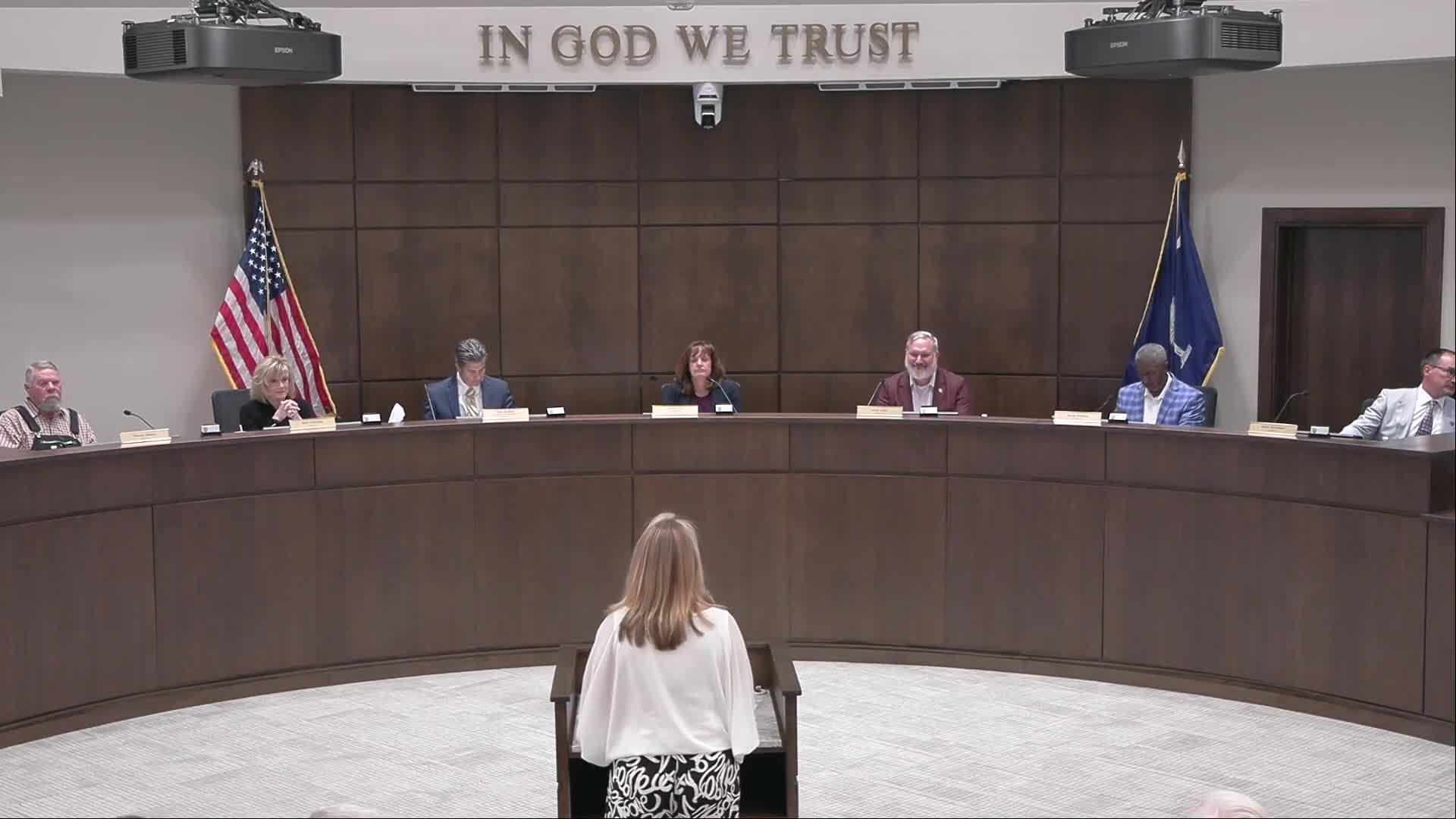York County Council defers Clover School District impact-fee decision after hours of public comment
Get AI-powered insights, summaries, and transcripts
Subscribe
Summary
After more than two hours of public testimony and extended council debate, York County Council deferred second reading of a proposed revision to the Clover School District residential impact fee. Council members asked staff for additional legal and fiscal information, and a proposed exemption for generational parcels was discussed then withdrawn.
York County Council delayed final action on proposed updates to the Clover School District—s residential impact fees on Oct. 20, voting to defer second reading until the council's next meeting after extended public comment and a legal review in executive session.
The ordinance under consideration would revise York County Ordinance No. 3020 to set the public education facilities impact fee for new residential development in the Clover School District at $15,035 for a single-family detached dwelling, $7,430 for multifamily units and $9,842 for manufactured homes; the motion on the table at the start of the debate reflected a lower figure carried over from a prior council action (a single-family fee of $7,000 and prorated amounts for other unit types). Council members said they wanted additional information on exemptions and statutory limits before taking final action.
The proposal attracted a large turnout from Clover-area residents, school officials and local business leaders. Christy Spears, chairwoman of the Fort Mill School Board, and multiple speakers from Clover urged council to restore the fee to the higher amount originally supported by the district, saying impact fees let "growth pay for growth" and have been a major source of school capital funding. "We have had impact fees now of this type for almost 10 years, and it's brought us in over $80,000,000," Spears said. Several Clover School District officials outlined construction cost pressures at Lake Wylie High School and noted the district is using a mix of bond proceeds, borrowings and impact-fee revenue to finish projects.
Clover School District Superintendent Sheila Quinn told the council that a 2008 development agreement tied to land near the district—s school sites expressly excluded impact fees for certain properties and that Clover was not a signatory to that agreement. "Clover School District was not a part of that development agreement, and we have not signed anything to extend that development agreement," Quinn said, reading a timeline of state and local law changes that affect fee eligibility.
Opponents, including builders' representatives and some residents, urged caution on affordability and process. Michael Pruner, president of the Home Builder Association of York County, said the discussion is about housing affordability: "This isn't about money in the pockets of home builders. This is about home affordability." He also said portions of the report underlying the proposed fee had been revised and that key affordability metrics were not present in the publicly visible version of the study.
Speakers on both sides pressed the council on exemptions for "generational" family land and for whether properties that were part of the 2008 Daimler-area development agreement should remain exempt. Several residents said that some family members building on inherited lots recently paid thousands of dollars in impact fees and asked for fair treatment.
During council deliberations a council member moved an amendment that would have exempted a single new or additional residential structure on platted lots that existed 20 years before the ordinance's effective date; the amendment was seconded and debated, but council later withdrew that motion and instead sought outside legal review. Council took the item into executive session for legal advice, then returned and the maker withdrew the original motion and moved to defer second reading. The motion to defer carried.
Council members said the deferral will allow staff to collect additional detail requested by council and to provide clearer answers on legal authority, the limits imposed by state law on fee exemptions, and the specific capital items the district expects to fund with impact-fee revenue. Council also asked staff to provide clearer line-item detail on what the requested fee increase would fund (for example, stadiums, athletic packages, traffic signals and buses) and to report on whether recently announced development projects (discussed in public materials) changed the district's projected revenues.
The deferral preserves the opportunity for public testimony at the official public hearing on Nov. 17; county staff said the Oct. 20 appearance session was an allowance for public comment after an earlier public-notice error and that the formal public hearing record will be taken on Nov. 17.
What happens next: Council asked staff and legal to prepare written responses and options for council members before the next meeting, including legal analysis of possible exemptions and a clearer breakdown of eligible capital items under state impact-fee law. The item will return to council at second reading on the next scheduled meeting date.
Votes and motions recorded related to this item: a motion to approve the ordinance as previously acted on at first reading was on the table; an amendment to create a 20-year-platted-lot exemption was moved and seconded, then later withdrawn; council voted to enter executive session for legal advice; after executive session the council voted to defer second reading until the next council meeting (motion carried). No final fee increase was adopted on Oct. 20.
Community relevance: The proposal affects new residential construction inside the Clover School District and would alter who pays for school capital projects (new-home buyers vs. current taxpayers). The item drew wide public participation, including elected school board members, district staff, business and builder groups, and many Clover residents.
Ending: Council and staff said they expect to return the item at the next meeting with supplemental legal analysis and more-detailed financial breakdowns so council members can weigh community concerns, statutory limits and the district—s capital needs before taking a final vote.
